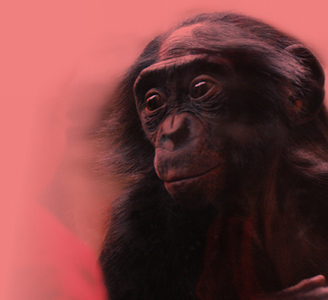Science
Current Research
For information on current research being conducted by Frans de Waal and his team, please visit the Living Links Website. For research publications click here.
Other Books by Frans de Waal
For a complete listing of books by Frans de Waal click here.
The Age of Empathy
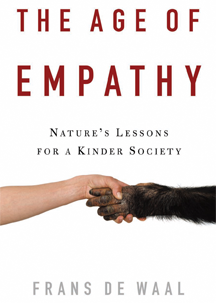
Are we our brothers' keepers? Do we have an instinct for compassion? Or are we, as is often assumed, only on earth to serve our own survival and interests? By studying social behaviors in animals, such as bonding, the herd instinct, the forming of trusting alliances, expressions of consolation, and conflict resolution, Frans de Waal demonstrates that animals—and humans—are “preprogrammed to reach out.” He has found that chimpanzees care for mates that are wounded by leopards, elephants offer “reassuring rumbles” to youngsters in distress, and dolphins support sick companions near the water's surface to prevent them from drowning. From day one humans have innate sensitivities to faces, bodies, and voices; we've been designed to feel for one another. De Waal's theory runs counter to the assumption that humans are inherently selfish. Through a better understanding of empathy's survival value in evolution, de Waal suggests, we can work together toward a more just society based on a more generous and accurate view of human nature. Written in layman's prose with a wealth of anecdotes, wry humor, and incisive intelligence, The Age of Empathy is essential reading for our embattled times.
Our Inner Ape
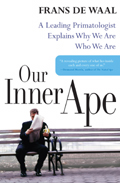
Noted primatologist de Waal thinks human behavior cannot be fully explained by selfish genes and Darwinian competition. Drawing on his own primate research on chimpanzees and bonobos—our closest animal relatives—he shows how much we can learn from them about ourselves: our qualities of “fellow feeling and empathy” as well as our power-obsessed, violent side. We are “bipolar apes,” de Waal says, as much like bonobos as like chimps. The latter are known for their viciousness and “red in tooth and claw” social politics, but bonobos offer a radically different social model, one of peace and hedonistic orgies; de Waal offers vivid, often delightful stories of politics, sex, violence and kindness in the ape communities he has studied to illustrate such questions as why we are irreverent toward the powerful and whether men or women are better at conflict resolution. Readers might be surprised at how much these apes and their stories resonate with their own lives, and may well be left with an urge to spend a few hours watching primates themselves at the local zoo. Review from Publisher's Weekly.
Bonobo: The Forgotten Ape

In the first book to combine and compare data from captivity and the field, Frans de Waal, a world-renowned primatologist, and Frans Lanting, an internationally acclaimed wildlife photographer, present the most up-to-date perspective available on the bonobo.
Chimpanzee Politics
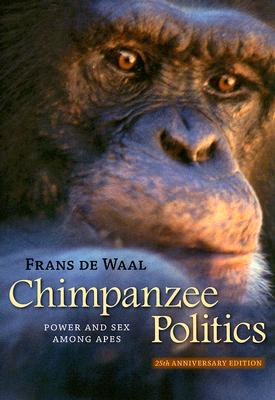
The first edition of Frans de Waal's Chimpanzee Politics was acclaimed not only by primatologists for its scientific achievement but also by a much broader audience of politicians, business leaders, and social psychologists for its remarkable insights into very basic human needs and behaviors. In this revised edition—featuring a new gallery of color photographs along with a new introduction and epilogue—de Waal expands and updates his story of the Arnhem colony and its continuing political upheavals. We learn the fate of many memorable chimpanzees and meet the colony's current leaders and their allies. The new edition remains a detailed and thoroughly engrossing account—of sexual rivalries and coalitions, of actions governed by intelligence rather than instinct—and it reaffirms the complex bond between humans and their closest living relatives. As we watch the chimpanzees of Arnhem behave in ways we recognize from Machiavelli (and from the nightly news), de Waal reminds us again that the roots of politics are older than humanity.
Good Natured
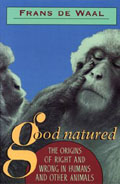
To observe a dog's guilty look. to witness a gorilla's self-sacrifice for a wounded mate, to watch an elephant herd's communal effort on behalf of a stranded calf—to catch animals in certain acts is to wonder what moves them. Might there he a code of ethics in the animal kingdom? Must an animal be human to he humane? In this provocative book, a renowned scientist takes on those who have declared ethics uniquely human Making a compelling case for a morality grounded in biology, he shows how ethical behavior is as much a matter of evolution as any other trait, in humans and animals alike.
